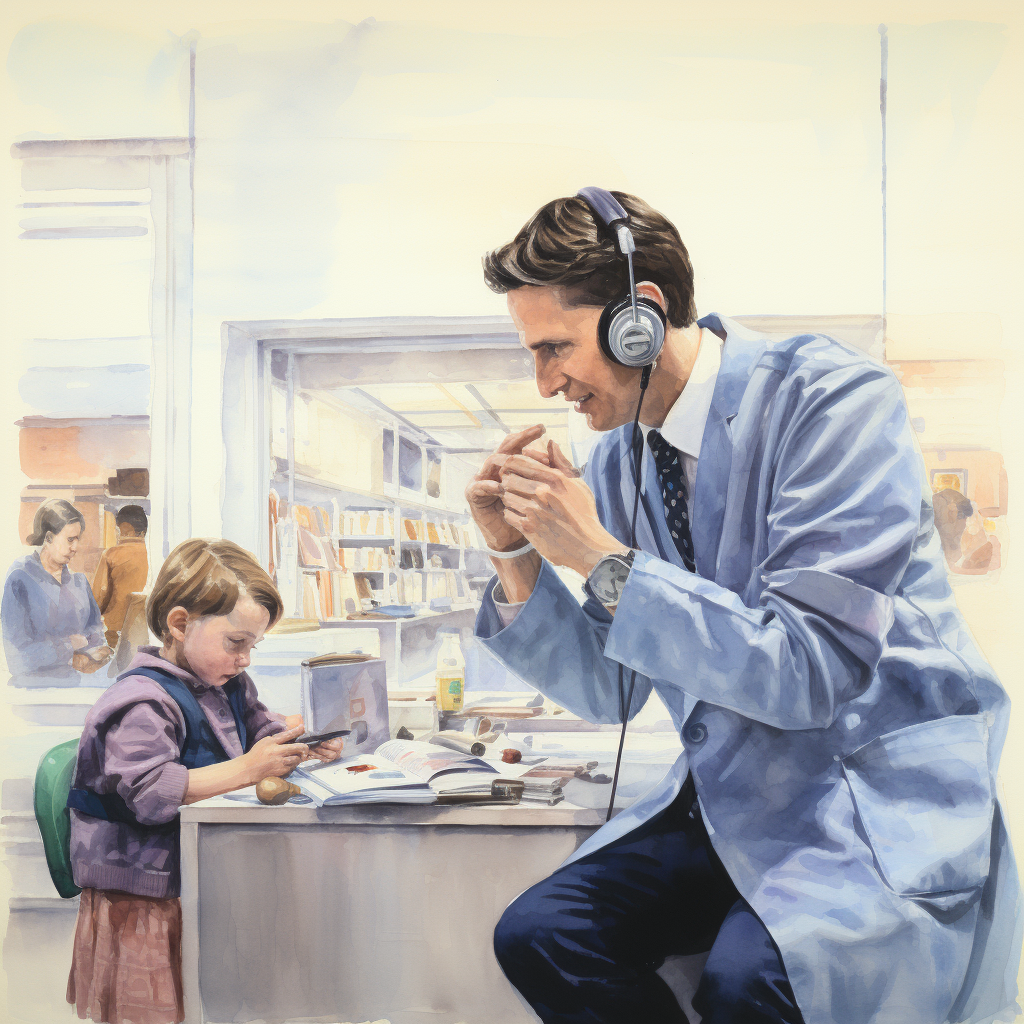What Is An Audiologist?
An Audiologist is a healthcare professional specializing in the diagnosis, treatment, and management of hearing and balance disorders. They are responsible for evaluating patients’ hearing abilities and working with them to develop customized treatment plans to improve their hearing and quality of life. Audiologists use a variety of tests and techniques to identify hearing loss, provide rehabilitation services, and fit patients with hearing aids or other assistive listening devices.
Audiologist Duties
The primary duties of an Audiologist include:
- Conducting comprehensive hearing evaluations using various testing methods, such as pure-tone audiometry, speech audiometry, and acoustic immittance testing
- Diagnosing and treating hearing loss, tinnitus, and balance disorders
- Fitting and adjusting hearing aids or other assistive listening devices for patients
- Providing counseling and education to patients and their families about hearing loss, treatment options, and communication strategies
- Collaborating with other healthcare professionals, such as otolaryngologists and speech therapists, to provide comprehensive care
- Keeping detailed records and ensuring compliance with relevant regulations, such as the Health Insurance Portability and Accountability Act (HIPAA)
Day In The Life of Audiologist
A typical day for an Audiologist might involve:
- Reviewing patient appointment schedules and preparing for the day’s consultations
- Conducting hearing evaluations using diagnostic equipment and interpreting test results
- Meeting with patients to discuss their hearing concerns, medical history, and treatment options
- Fitting patients with hearing aids or other assistive listening devices, ensuring proper fit and functioning
- Providing follow-up care, including adjustment of devices, monitoring of progress, and addressing any concerns or issues patients may have
- Completing patient documentation and staying updated on the latest research and developments in the field of audiology
Audiologist Work Schedule
Audiologists typically work full-time, standard business hours in offices or clinics. Some may work part-time or flexible schedules depending on the needs of their employer. The job can be mentally demanding, as Audiologists must stay current on research and technology advancements, navigate complicated diagnostic equipment, and handle challenging patient cases. However, the work environment is typically low-stress, with limited exposure to hazardous materials or situations.
Growth Of The Audiologist Career
The Bureau of Labor Statistics (BLS) projects that employment of Audiologists will grow 13% from 2018 to 2028, which is much faster than the average for all occupations. This growth is attributed to the aging population and increased awareness of the importance of early intervention for hearing and balance disorders.
Typical Audiologist Employers
Audiologists typically work in the following settings:
- Private practice
- Hospitals
- Ear, nose, and throat (ENT) clinics
- Rehabilitation centers
- Educational institutions
- Government agencies
- Hearing aid manufacturers
How To Become An Audiologist
To become an Audiologist, the following qualifications are typically required:
- A Doctor of Audiology (Au.D.) degree from an accredited program
- Completion of a clinical externship or supervised practical experience
- Passing the national exam administered by the American Board of Audiology (ABA) or the Praxis exam for Audiologists
- Obtaining state licensure, which may require additional training or continuing education
Audiologist Salary Data
According to the BLS, the median annual wage for Audiologists in the United States was $77,600 as of May 2018. The lowest 10% earned less than $52,300, and the highest 10% earned more than $117,910. Hourly wages ranged from $25.14 to $56.69.
Popular Colleges for Audiologist
Some popular colleges offering accredited Doctor of Audiology programs include:
- Vanderbilt University
- Northwestern University
- University of Iowa
- University of North Carolina at Chapel Hill
- University of Washington
Job Growth Projections And Forecast for Audiologist
The BLS reports that there were approximately 14,800 Audiologists employed in the United States as of 2018. With the projected 13% job growth rate, it is estimated that there will be 1,940 new jobs in the field from 2018 to 2028. This growth is attributed to the increasing need for Audiologists to serve an aging population with hearing and balance disorders, as well as ongoing efforts to raise awareness about the importance of early intervention and hearing preservation.


